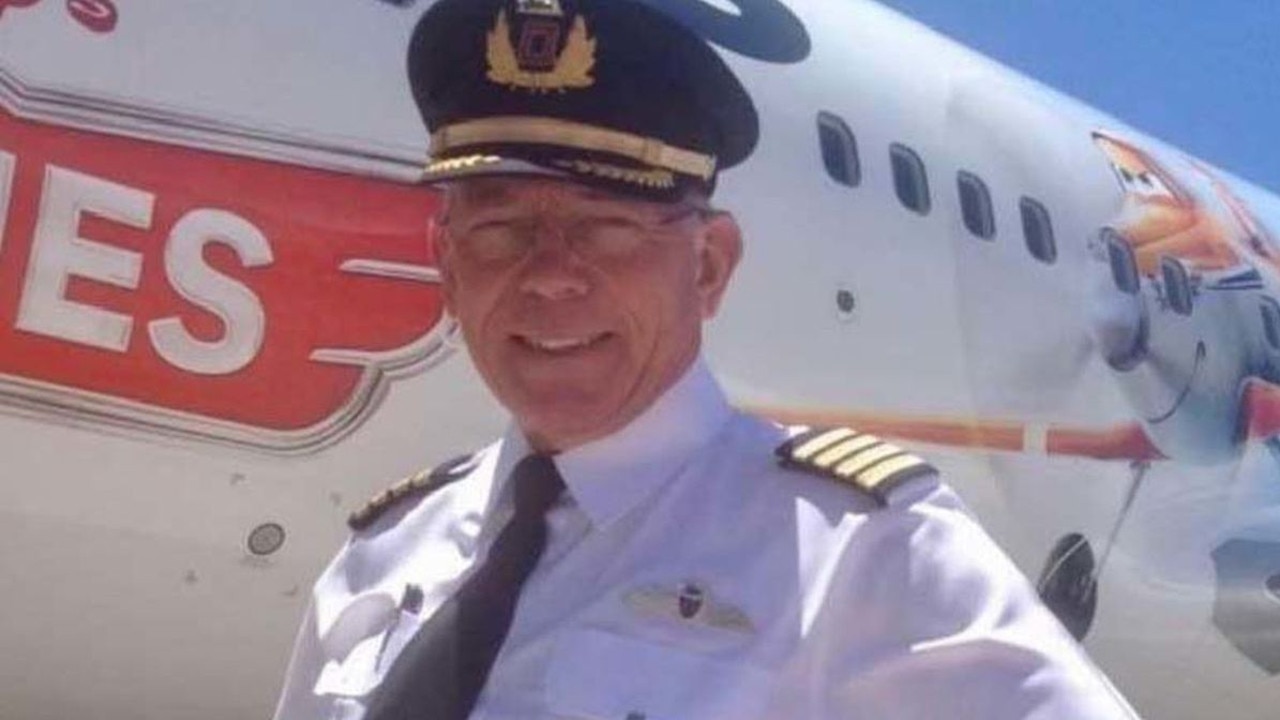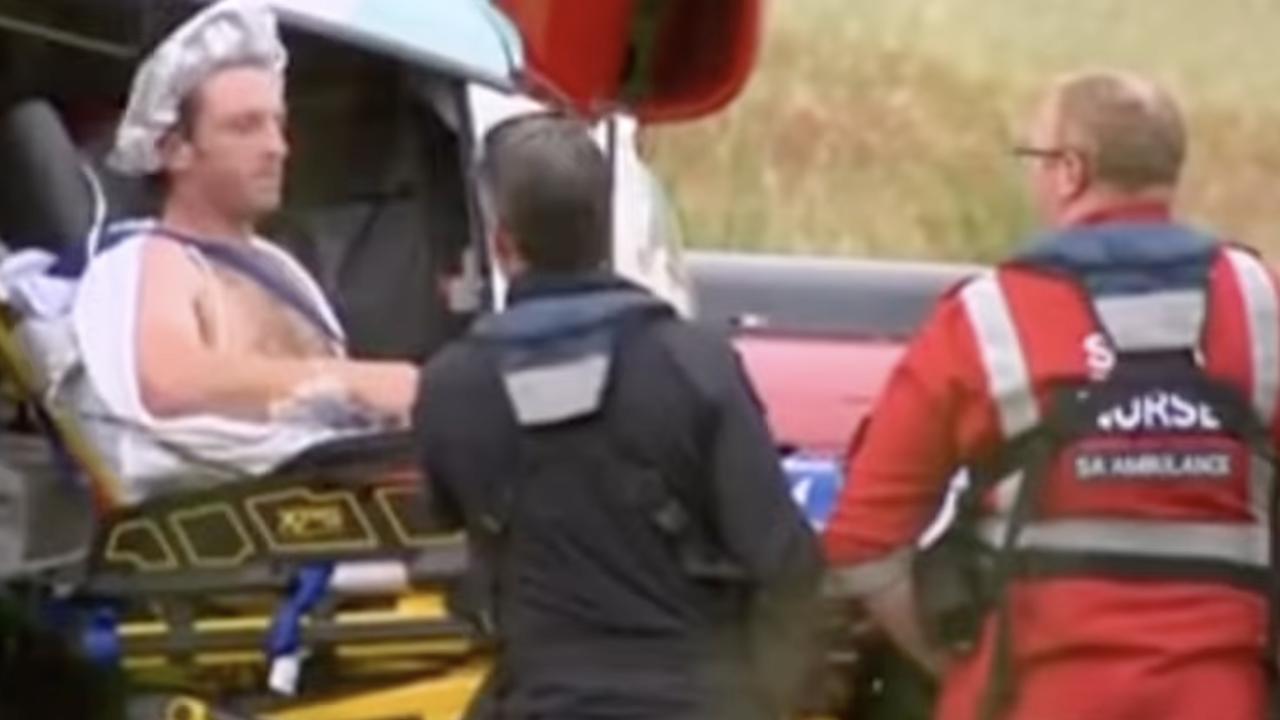How tradie’s cruise nightmare unfolded
A Sydney tradie’s cruise nightmare after a threesome gone wrong took another turn this week. Here’s how the case unfolded.
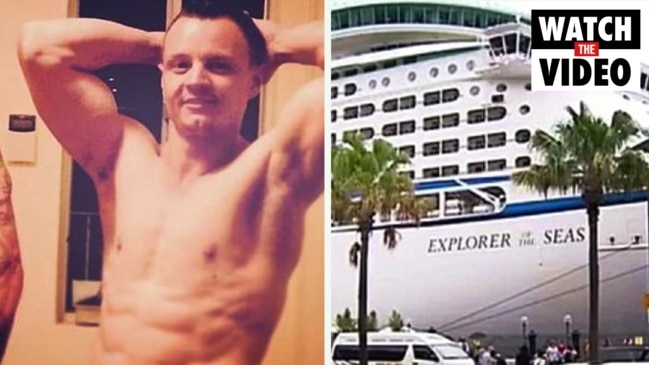
A Sydney tradie who says he was “falsely imprisoned” for six days on a cruise ship after being accused of rape during a threesome with two 18-year-old schoolies has suffered a fresh blow more than five years on from the incident.
Daniel Rawlings was ordered this month to pay back $100,000 in damages, after Royal Caribbean successfully argued on appeal that its ship captain was justified in detaining the then-28-year-old.
Mr Rawlings, who says he suffers post-traumatic stress symptoms from the confinement, denies any wrongdoing and has never been charged.
Here’s how the nightmare ordeal unfolded, as laid out in court documents.
Rawlings meets first girl
Daniel Rawlings, an air-conditioning tradesman from Sydney’s Northern Beaches, and his friend Matthew Champion board the Explorer of the Seas in Sydney on November 10, 2016 for a 10-day voyage through the South Pacific. They are allocated cabin number 6277.
The pair go drinking at the ship’s nightclub Dizzy’s on November 13, where Mr Rawlings meets Tegan Miles. They go back to his room and have sex.
Ms Miles is unwell the following morning and is taken to the ship’s medical centre. She claims she is questioned by staff at the medical centre, who allege Mr Rawlings drugged her – something she denies. The ship’s doctor advises her to stop drinking for 24 hours, putting her bad reaction down to too many vodka Red Bulls.
Drinks at Dizzy’s nightclub
Mr Rawlings and Mr Champion meet up with Ms Miles again on November 14 at the Schooner Bar, where they drink and have dinner. Later that evening, Mr Rawlings and Ms Miles go back to Dizzy’s, but Mr Champion decides to go to bed.
At the nightclub, the pair meet another woman known as Ms A. They suggest that she come back to his cabin for a threesome. According to Mr Rawlings and Ms Miles, she agrees. Ms A says she does not remember what happened.
CCTV footage shows the group returning to the room. Mr Rawlings’ lawyer, David Stanton, later tells the court the party are moving in a “jovial” fashion “as normal people do”, while Royal Caribbean’s counsel, James Sheller SC, instead suggests Ms A is “not moving in a straight line” and is “being carried along”.
Minutes after the trio return to the room, an annoyed Mr Champion says “not again” and barges out with his blanket and pillow to sleep on a deck chair.
Stream your news live & on demand with Flash for $8/month and no lock in contracts. New to Flash? Try 14 days free now>
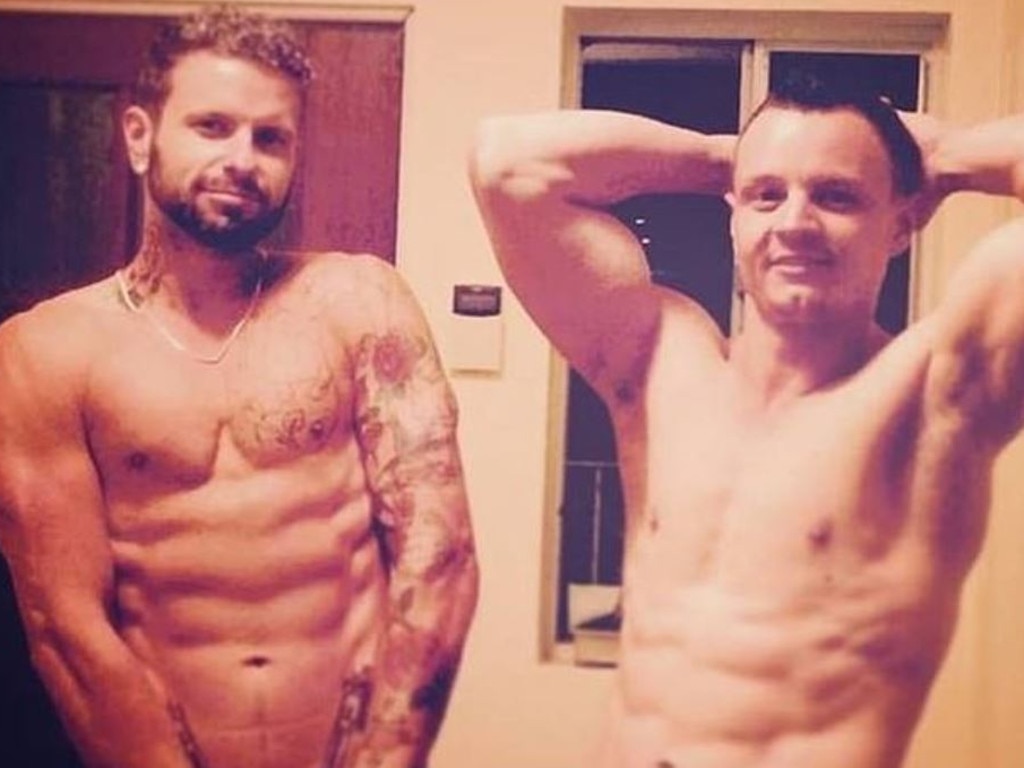
Threesome in cabin
The three have sex in the cabin. At one point Ms A says she feels sick and is helped into the ensuite, where she vomits and has a shower. Mr Rawlings says the sexual activity between all three of them continues afterwards and they eventually fall asleep.
Ms Miles tells the court that Ms A “knew exactly what she was doing” during the consensual encounter, which lasted several hours.
Early that morning, Ms A wakes up and leaves the cabin completely naked and “disoriented”.
She enters an elderly couple’s room, where the woman calls ship security. Ms A is taken to the medical centre, where her mother joins her. According to court documents, a security officer records in her incident report that Ms A tells her, “I don’t know what happened. All I know is that I’m dancing in Dizzy’s and I am looking for a bathroom … I am with girls, I only know Teagan.”
‘Crime to report’
At 5.41am on November 15, ship security send an email to the port agent at Port Villa, Vanuatu requesting that the incident be reported to local police. The email is titled “Crime Allegation to Report”.
Ms A provides a statement to security that later that morning. “I was at Dizzy’s nightclub after eleven at night,” she says. “I had a few drinks and can’t really remember what happened. I wanted to go home back to the cabin, so I did. I had some help from a lady who lent my jacket which was hers and security was there to help me.”
At around 9am, two security officers are sent to bring Mr Rawlings for questioning in a conference room. He is told he is not allowed to leave while the evidence is being collated. Mr Rawlings is detained for about 10 hours, wearing only his shorts.
During this time Mr Rawlings says he is interrogated by multiple guards who ask him “about the incident last night”, “what happened in the room”. He tells the court he is confused after being told that a girl was found with little clothing who couldn’t remember what had happened.
That afternoon, Royal Caribbean officials determine that “we will be categorising this as a sexual assault-rape, based on the guests (survivor’s) inability to consent due to being extremely intoxicated”, emails tendered in court show.
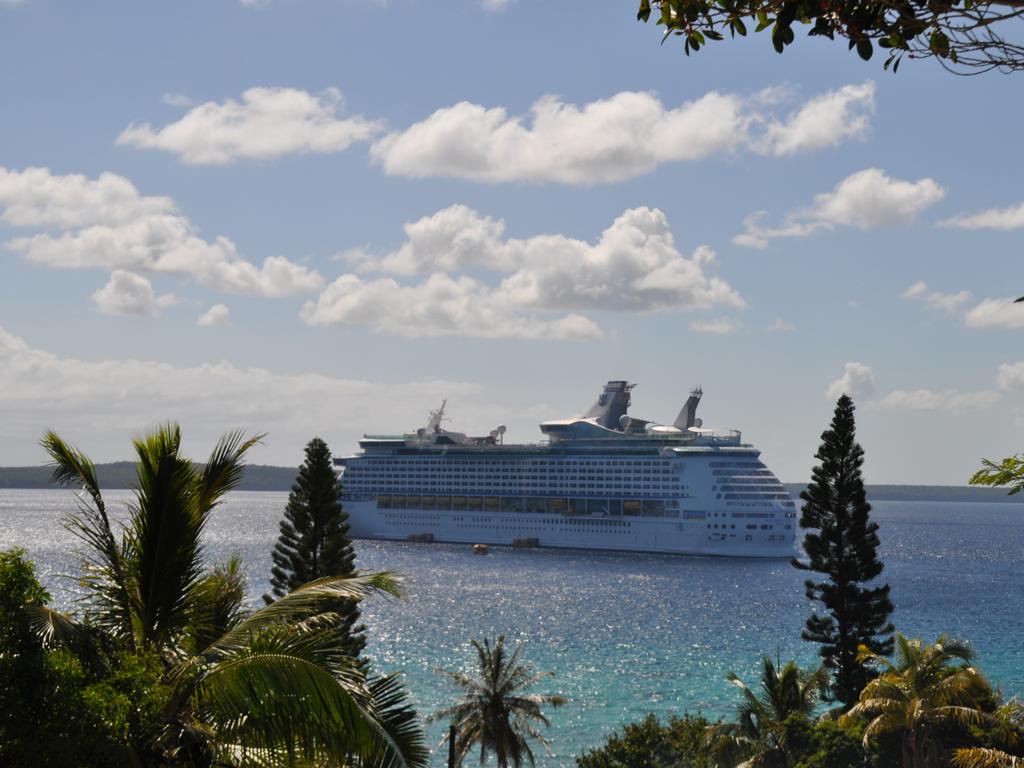
Taken to confinement
At around 5pm, Mr Rawlings is then marched by three or four security guards to another room, where he is held for five days until the ship returns to Sydney.
A guard remains at the door at all times, and the door is kept ajar with a wedge so he can be observed. He allowed to visit the staff deck for fresh air and to smoke while escorted by a security guard.
Mr Rawlings spends the majority of the time in bed in the windowless room watching television. He is offered access to watch free movies, but is later billed for them.
On November 16, officials from the Australian Consulate in Noumea board the ship, meeting with Ms A and her mother. One official visits Mr Rawlings to check on his welfare. Ms A and her mother visit Noumea Police seeking to press charges.
Noumea Police refuse to board the ship to investigate, telling Captain Rick Sullivan the alleged incident occurred in international waters and is outside their jurisdiction. They refuse to allow Royal Caribbean to offload Mr Rawlings to be repatriated to Australia.
Security recommends release
The following day, a senior investigator with Royal Caribbean’s global security team recommends that Mr Rawlings be released from confinement, as long as he does not have any contact with Ms A, her mother or her grandparents, who are also onboard.
“The suspect/guest in this case will be in isolation under guard for an excessive amount of time,” he wrote in emails tendered to the court.
“We are not a law enforcement agency but we do have the authority to keep him isolated, under guard if he becomes a threat to the safety and security of the ship. In other words, if the suspect violates any of the terms the ship sets forth or becomes involved in any other incidents aboard the ship that are criminal or administrative in nature.”
At a meeting that day with the Captain Sullivan and other officials, Ms A’s mother strongly objects to the recommendation, becoming angry and emotional and stating that she “will throw the suspect overboard if he is been released from custody”, emails state.
Captain Sullivan informs Mr Rawlings that he will be confined until the ship reaches Sydney.
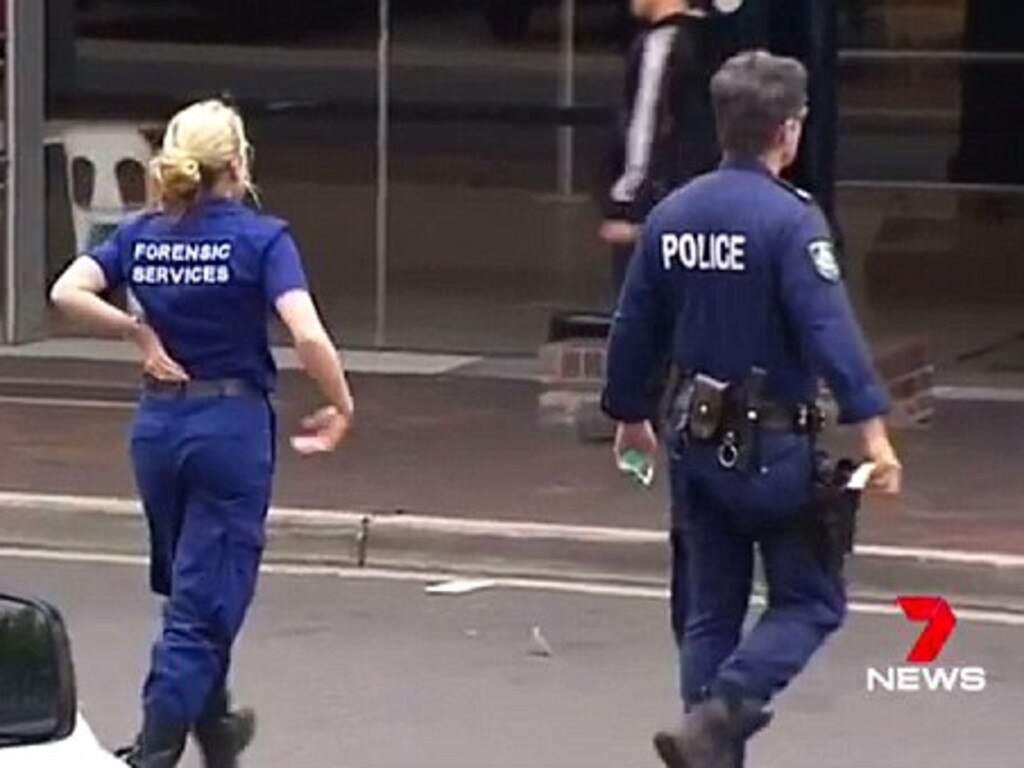
No charges laid
NSW Police board the vessel upon arrival in Sydney on November 20. After questioning Mr Rawlings, police inform him they will not be pressing any charges and he is free to go.
He collects his clothing and belongings and leaves the ship some time around 5pm. He is not allowed to take his mobile phone, which is taken as evidence. He gives police his passcode to access the phone and returns to his home in Manly.
An investigation continues for around four months, during which time Mr Rawlings is repeatedly contacted by detectives, but he is never charged with any crime.
Mr Rawlings subsequently reports experiencing anxiety and depression, and having flashbacks of being locked in the cabin.
Royal Caribbean sued
He successfully sues Royal Caribbean in 2020 for false imprisonment and is awarded more than $100,000 in damages and court costs.
Royal Caribbean argues that Mr Rawlings had been subject to a ticket contract which included a Guest Conduct Policy and Involuntary Confinement Policy.
In the District Court, Judge John Hatzistergos rules Mr Rawlings’ continued detention was not reasonable and based on “a suspicion of a crime rather than any evidence”.
Judge Hatzistergos says holding Mr Rawlings beyond noon on the third day was uncalled for, after Captain Sullivan was told by the cruise company’s security department he should be released with conditions.
“In my view the detention comprising conditions akin to solitary confinement for the remainder of the journey back to Sydney as described was not reasonable in the circumstances,” he says.
“It follows that while I find that the Captain was justified at common law to detain the Plaintiff for the initial period of detention, I am not satisfied that the secondary confinement decision was lawful and the Plaintiff’s action in false imprisonment to this extent has been made out.”
Decision overturned on appeal
Royal Caribbean appeals the decision, arguing before the NSW Court of Appeal that Judge Hatzistergos did not properly consider “the risk to order on the vessel” given the emotionally charged environment on board.
The three-judge panel finds in favour of Royal Caribbean, finding that Captain Sullivan decided to keep Mr Rawlings in detention to avoid any potential conflict, and that it was necessary to keep everyone safe.
Justice Anthony Meagher says the finding that the 28-year-old’s detention was “akin to solitary confinement” had no evidence, as his welfare was regularly checked by both security and medical staff.
“He was given the opportunity to make twice daily visits to the crew deck, where he had access to the open air and the opportunity to smoke,” Justice Meagher says.
“He also had 24-hour access to food and non-alcoholic beverages, as well as the opportunity to acquire necessary clothing from the ship’s gift shop.”
Mr Rawlings is ordered to repay the $100,000, as well as Royal Caribbean’s cost of the appeal.
— with NCA NewsWire




